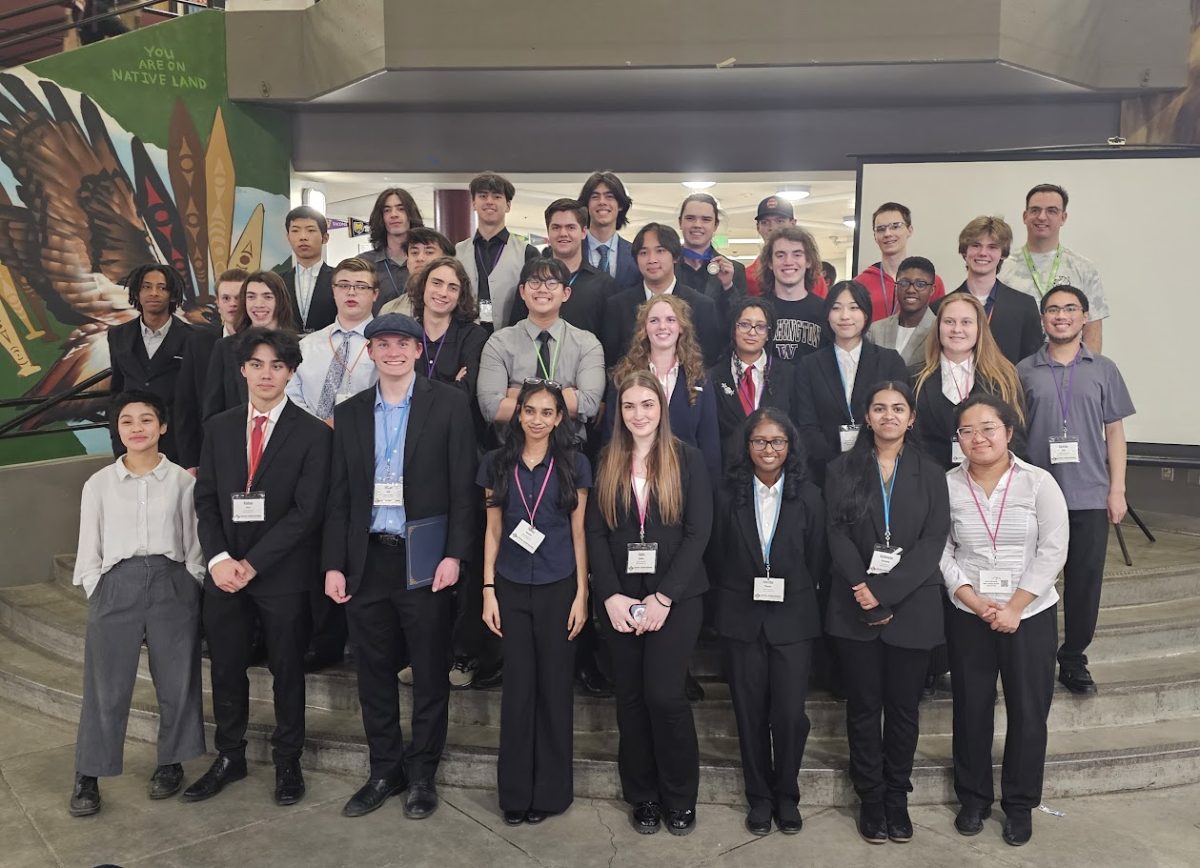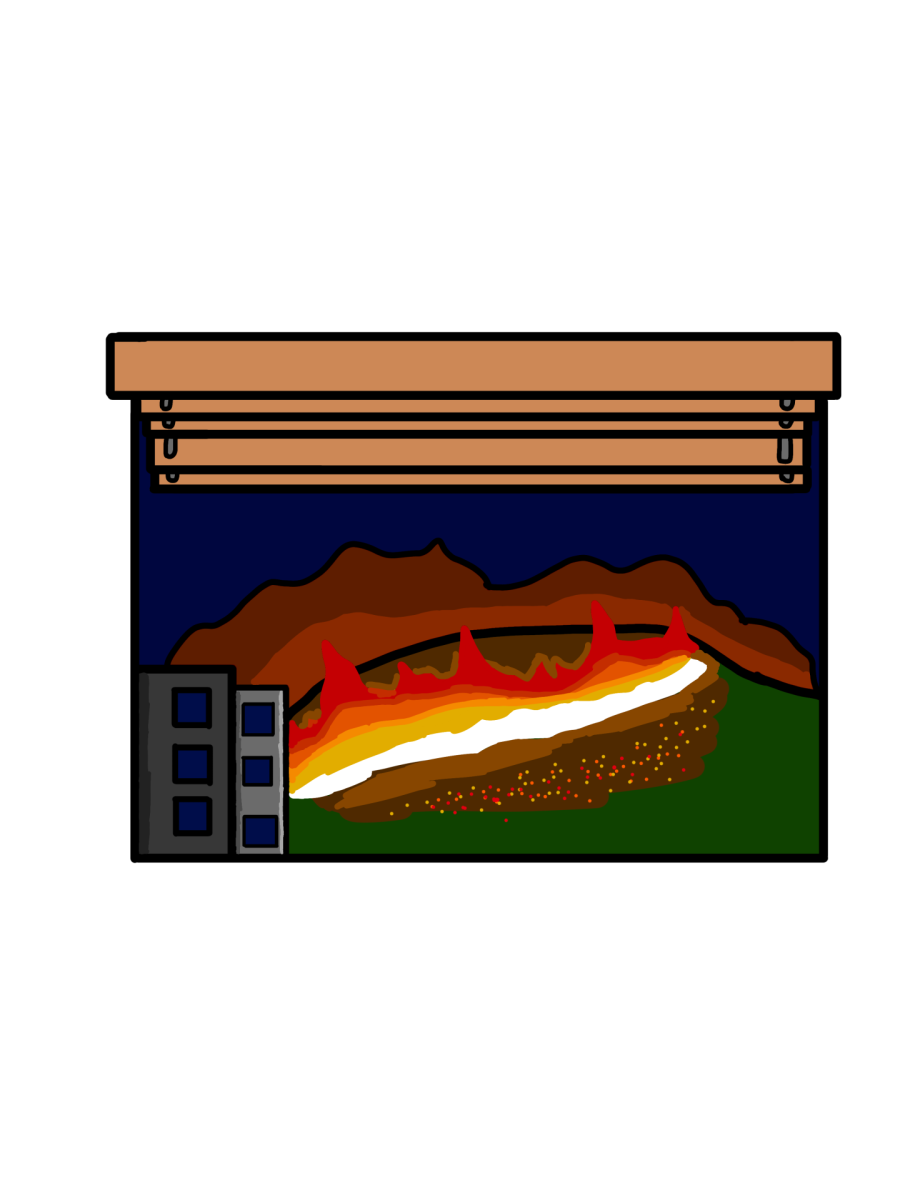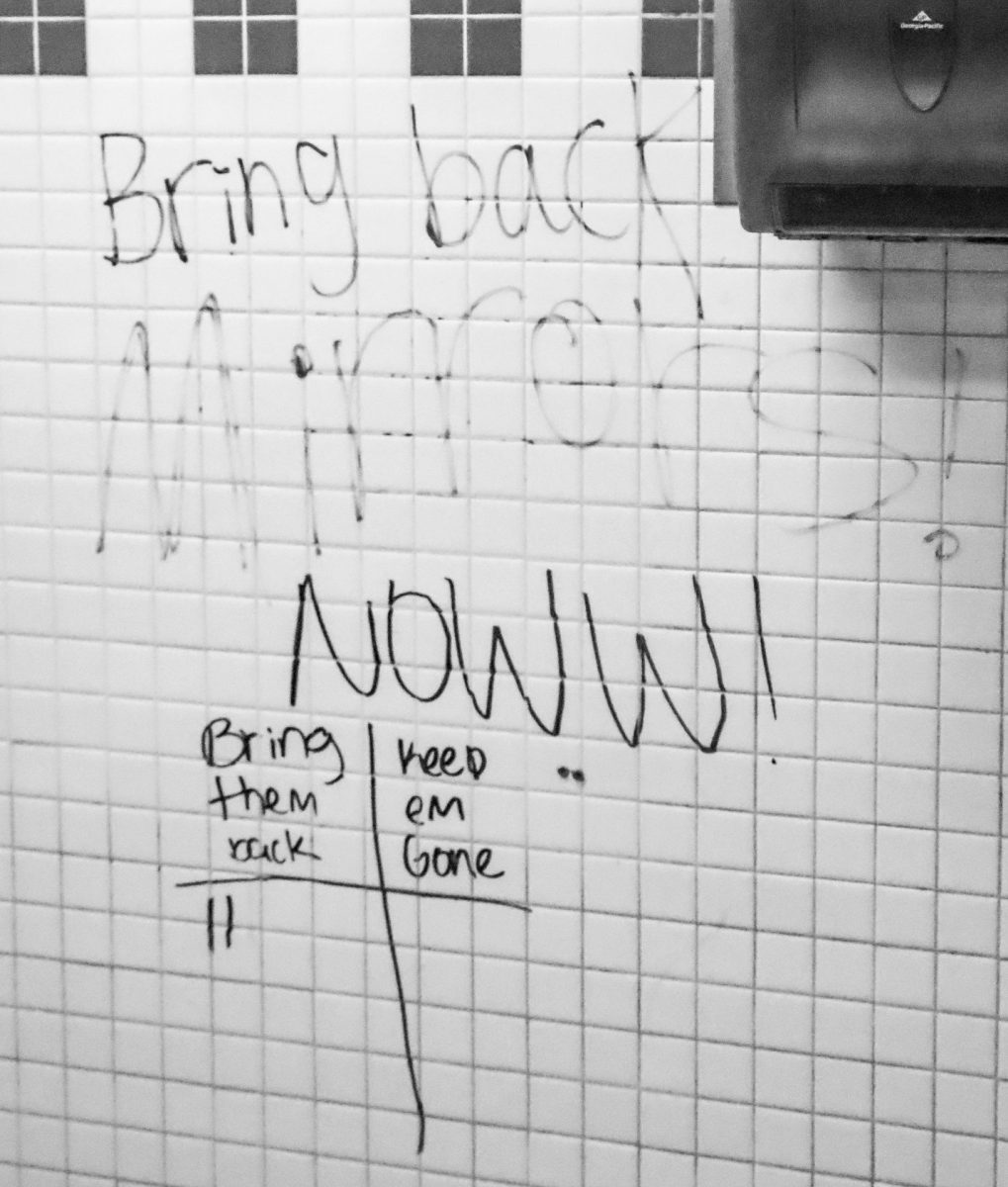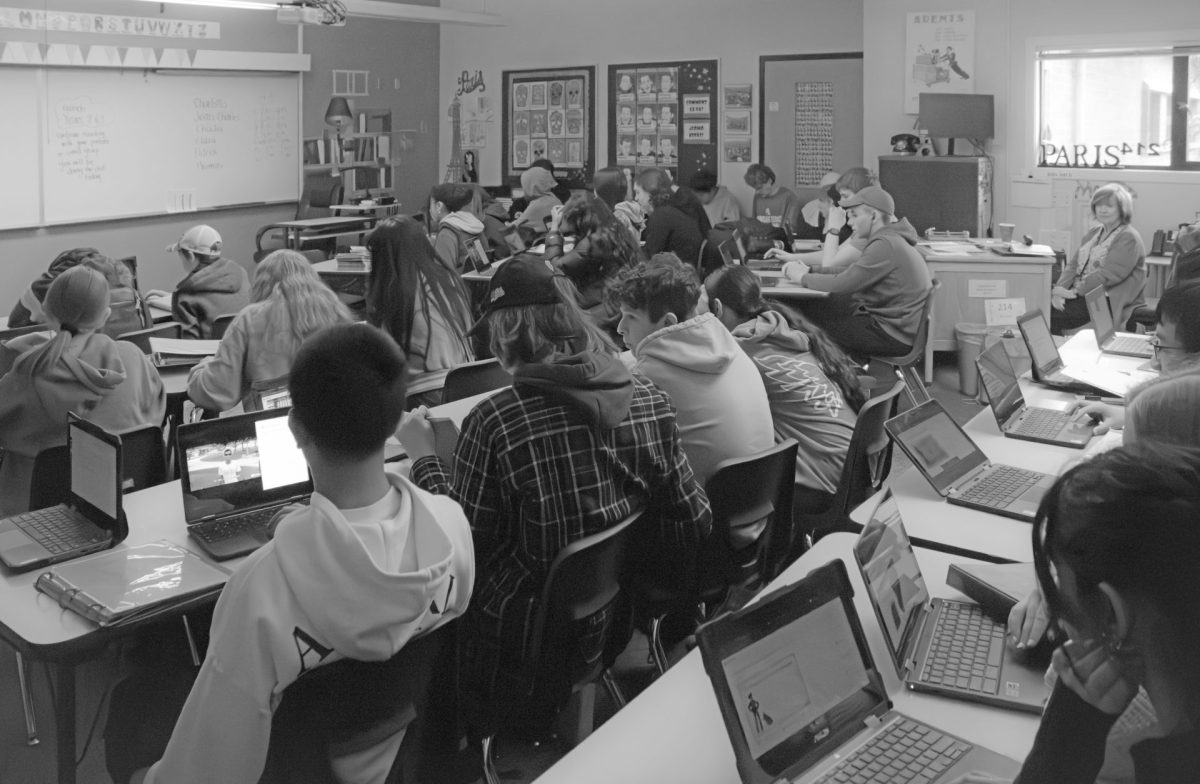MTHS Principal Greg Schwab wants you to sleep in.
“I support later start times. But I also understand that it is a very complicated decision,” Schwab said.
Seattle Public Schools voted to switch to later start times in November, according to the Seattle Times. Effective next year, high schools in the Seattle Public School system will start at 8:30 a.m.
Since then, other districts around the state, including Edmonds School District (ESD), are considering the same thing.
According to University of Washington (UW) researchers, teenagers are not physically ready to fall asleep before 11 p.m. and are not alert or fully awake before 8 a.m.
This conflicts with the start times for MTHS and many other high schools in the ESD that begin at 7:20 a.m., with the exceptions of Scriber Lake High School, which begins at 8:35 a.m. and Edmonds Heights K-12, where the earliest classes start at 9 a.m. High school students are trying to work in school at a time when they should most likely not be awake at all, the UW research shows.
There is an ESD committee looking at what to do about the subject of new start times.
This committee, called Graduates Who Are Ready For Life, is one of ESD’s Strategic Direction Work Groups.
ESD Community Relations Manager Debbie Joyce Jakala said there will be a work group in the spring consisting of parents, community, staff and students that will be looking at the consideration of new school start times.
According to the ESD website, the committee will be looking at High School start times in March, April, and May.
At this point, nobody can be entirely sure if this could happen at MTHS and how long it could take.
Nathan Hale High School (NHHS), a Seattle Public School, is an example of how later start times can work in high schools. In 2003, NHHS decided to change its bell schedule to start the school day at 8:40 a.m. and end at 3:10 p.m.
“The students enjoyed the extra time to sleep in,” NHHS math teacher and football coach Brian Coon said. Coon taught at NHHS when they made the switch. “The students were more engaged in learning, especially in the first period of the day.”
While moving start times back had benefits for the students in the morning, there were drawbacks to ending school later in the day.
Because NHHS got out of school later than other schools, student athletes had to get out of class early to make games and events in the afternoon.
“Students had to have creative class re-arrangements to not miss games and not affect grades,” Coon said.
Some teachers and students at NHHS are now hoping that Seattle’s new district-wide start times will allow athletes to make games without having to miss class.
It is unclear whether or not changing school start times would make a significant difference in academic performance.
“I do not know if [changing school start times] will impact student learning. Students are more alert at the end of the day and they need more sleep than the amount they have. [However,] their [amount of sleep] does not necessarily have a correlation between student learning,” Schwab said.
Past research has shown that when students get adequate amounts of sleep, they perform better in school in several different ways.
In research done by scientists at the University of Minnesota, teens whose days were shifted later had an increase in attendance, test scores and grades with a decrease in substance abuse and symptoms of depression.
Another study was conducted in the Survey Research Center at the University of Michigan on children and adolescents ages 10-19. In the study, it was found that students at age 16 who got around seven to nine hours of sleep were associated with the highest test scores.
Scores changed significantly for students who got sleep outside of this range. Teens who got less than six hours of sleep and above 11 hours of sleep had significantly worse performance.
Another concern of moving start times is students may stay up later than they did before, thus changing schedules would have almost no impact on the amount of sleep students get.
In an interview with the Hawkeye a year ago, NHHS student Nathan Lowe admitted to using the later start times to stay up until midnight almost every night.
Students at MTHS tend to stay up less to just as long as Lowe.
After interviewing MTHS students in different age groups, a recurring theme was that people in older age groups stayed up later, whether it is due to after school activities, hanging out with friends or procrastination.
“I usually stay up until midnight,” junior Angeline Cartwright said, “I [am] generally out late with Robotics and then do homework. I also am a bit of a procrastinator. ”
This can be compared to underclassmen who do not stay up quite as late as their upperclassmen peers.
“On school nights I would usually get to sleep at 10 p.m.,” sophomore Isa Kembel said. “[I am typically up] studying for school and playing soccer late at night.”
Even if the studies show that start times should be moved back, this does not mean that it can be done.
According to a Seattle Times article by reporter John Higgins, there has been opposition from many areas on changing school start times.
These include sports coaches not wanting practices cut short, community groups that don’t want to wait later for gyms and fields as well as before and after school programs that don’t want to change their schedules.
According to Higgins, other school districts have tried and failed, such as the Issaquah School District who tried for two years to see if there was a good way to change bell times before giving up.
“It is very expensive and effects costs with every level of the district, elementary schools and buses,” Schwab said.












Kelly Armentrout • Feb 12, 2016 at 8:00 pm
Thank you for writing about this important issue. It makes sense to start schools later for high school students. Seattle Public Schools recently decided that no junior or high school will start before 8:30 a.m. in the 2016-2017 school year. Most will start at 8:45 a.m. The American Academy of Pediatrics recommends high schools start at 8:30 a.m. or later. Here is another interesting look at the issue: http://parenting.blogs.nytimes.com/2014/01/15/what-do-students-need-most-more-sleep/?_r=0
In this article, one school district that did nothing but change its start time saw a big improvement in test scores. Please keep up the good reporting and follow this story.